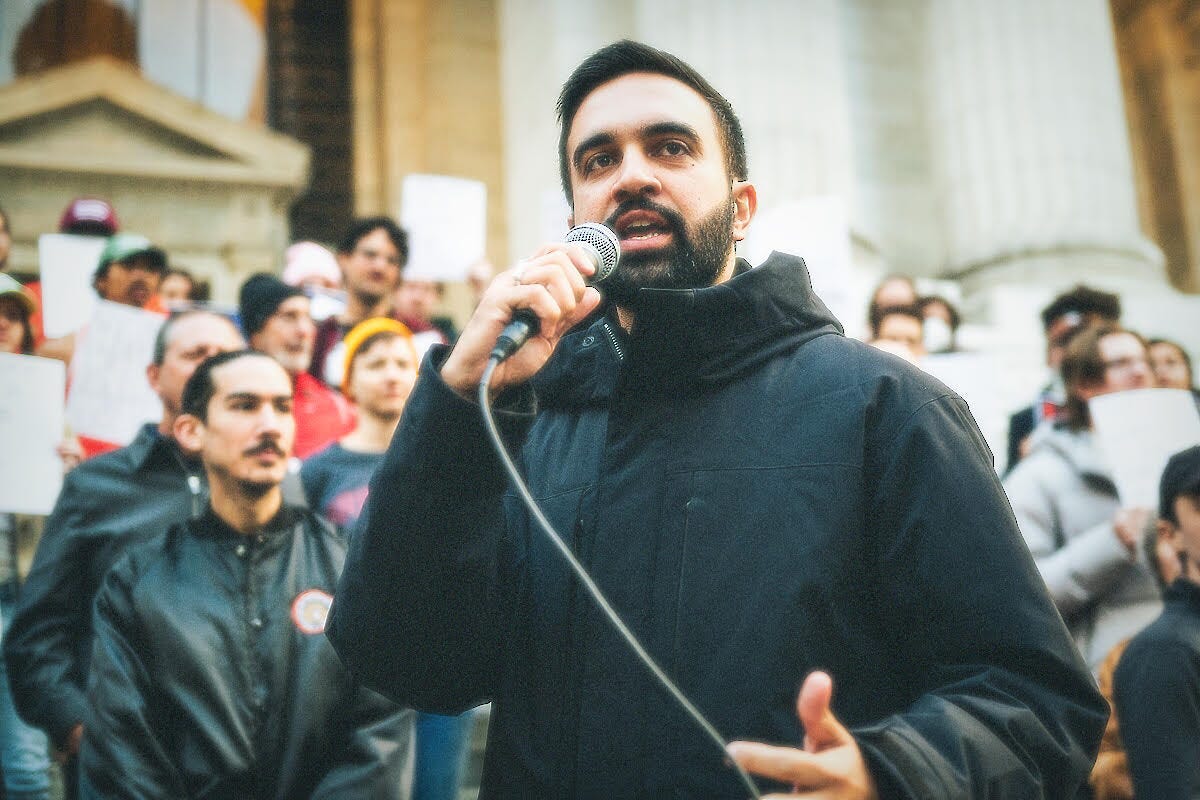New Maps
Zohran Mamdani, between “sewer socialism” and the right to the city.
The confetti has fallen. The celebration hangovers have faded. Now the problems and realities of power come into focus, the excitement for a new future faces the inertia of history. It is not a sure thing that Zohran Mamdani will be the next mayor of New York City, but it is more likely than the other options.
Eric Adams is simply too bogged down with scandal and corruption; the political establishment has abandoned him. Andrew Cuomo’s shames follow him around like a cursed shadow. His recently-confirmed independent campaign will be shambolic at best. Real estate moguls and the like will do what they can to prevent Mamdani’s election. The momentum is against them.
We should not for a second dismiss the significance of “Zohran Mamdani, Mayor of New York City.” The largest city in the United States – a global economic hub, a collision point for hundreds of languages, backgrounds, and cultures – governed by a democratic socialist, and a young Muslim to boot.
In the context of Donald Trump’s…
Keep reading with a 7-day free trial
Subscribe to To Whom It May Concern... to keep reading this post and get 7 days of free access to the full post archives.



